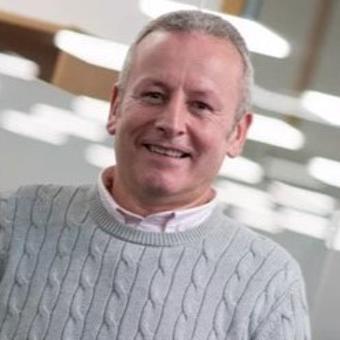Ian Jeffrey – chief executive of Lewis Silkin – on his career, how the firm has changed under his leadership, the market and the future
Ian, what’s been your career path and when did you take over as managing partner?
I joined Lewis Silkin as a trainee solicitor in 1990. On qualification, I practised general commercial litigation for two or three years but my aim was always to move into intellectual property and media which I did at around four years’ PQE. I became a partner in 1998 and then in 2005 I was elected managing partner, a role that I have been in ever since. Very recently, my role changed to that of chief executive. That role has many similarities with the managing partner role but with a more forward looking and commercial emphasis to it.
Has the firm changed much under your leadership?
We have more than doubled in size. We have also opened a number of additional offices, one in Cardiff and most recently one in Hong Kong. The fundamental direction of the firm has not changed dramatically although our focus has become clearer and we now devote most of our time and energy to building our market leading practices in working for clients in the wider creative industries and working for clients in all verticals in international employment law and global mobility.
What inspires you?
I have been lucky to work with many outstanding colleagues here at Lewis Silkin, a number of whom are the leading names in their practice areas. I also had the benefit of learning from a generation of partners who built the firm from its high street roots in South London to the strongly established beginnings of the commercial firm that we are today. Outside of work I am keen on endurance sports and admire all of those who can find the focus and determination to push themselves beyond the limits of the everyday.
What’s the market been like for the firm over the past couple of years?
Looking back over the period since the global financial crash in 2008, the firm has had an overall record of growth during that period including over the last couple of years. There is no doubt however that the winning of new projects is increasingly competitive not least due to the ever increasing sophistication of clients in their buying patterns and the efforts made by our best competitors to innovate and respond quickly to client demand.
What are its biggest challenges & opportunities moving forward?
The greatest opportunities are the achievement of market leading positions in the two areas that I have mentioned above. I feel that we are a significant way along our journey in doing this and that over the next three to five years we can make strong further progress. Many of the challenges that we face are those faced by all firms in the mid-size tier and perhaps more broadly. I have mentioned some of those above.
How much collaborative working is there between your UK offices?
There is a great deal of collaboration between our UK offices and in many ways we treat them as one office split across three different locations. There are frequent video conference meetings between the various teams and of course the firm’s technology platform allows seamless sharing of all data and work on a continuous basis. We do not run the separate offices as separate profit centres and that also promotes collaborative working.
You also have an office in Hong Kong but are there any plans to further increase your international footprint?
There are no current plans to open further international offices as the development of our international business turns very significantly on our membership of two key alliances, Ius Laboris which focuses on global employment law and the Global Advertising Lawyers Alliance which works with clients in the marketing services industry and major brand owners around the world.
Any thoughts on Brexit?
As I answer this we are leading up to a big panel event with clients on this topic. Our early stage pre-polling suggests a strong majority for ‘remain’ and I would go with that even if it was not the apparent majority view of our clients and contacts.
How do you invest in your people?
We are currently in the middle of our annual appraisal process during which a great deal of management time is devoted to working with people from across the business including all associates and partners and ensuring that they have a clear focus on not just contribution to the business but also their personal development. I participate in a significant number of partner appraisals each year reflecting the importance of this process.
To support the development objectives that people identify we run regular training programmes of various kinds together with other specialist initiatives where appropriate. I hope that our focus on this area as well as on a number of the other aspects of the working experience at Lewis Silkin is borne out by our having been placed in the Sunday Times Top 100 Best Companies for eight years running. There is always scope to improve.
Is there anything else you want to achieve in your career?
I would like the firm to achieve the market leadership in the areas that I have outlined above and to continue developing the working experience for all those that work here or will do so in the future. Related to that I would like to be involved in a number of game-changing projects in the area of legal service design and delivery, something which I think will be a major issue for firms in the next ten years and beyond. We are already working on some initial projects within the firm and contributing to the dialogue across the broader legal community about what the future holds.











